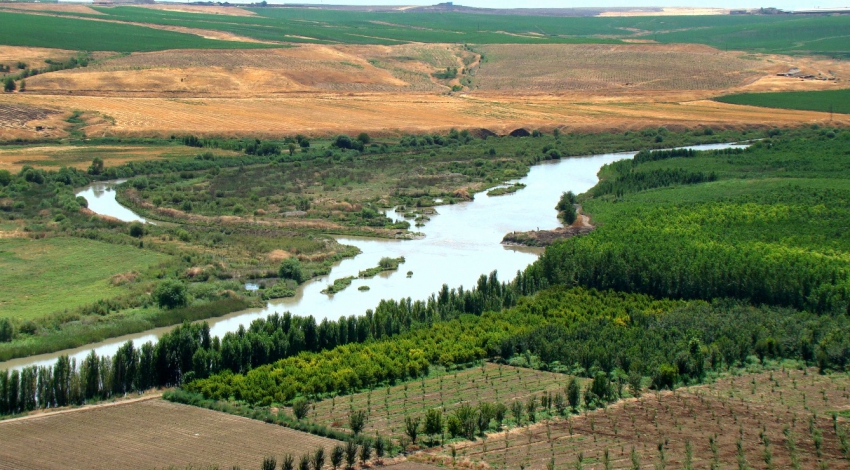 Agriculture, which accounts for more than 85% of the total water use and for more than two-thirds of the renewable freshwater resources utilisation in the region, will have to absorb the bulk of the shock resulting from such decrease in water availability[/caption]
Agriculture, which accounts for more than 85% of the total water use and for more than two-thirds of the renewable freshwater resources utilisation in the region, will have to absorb the bulk of the shock resulting from such decrease in water availability[/caption]Experts from the Food and Agriculture Organization of the United Nations (FAO) arrived in Tehran today for a six-day mission (lasting from 10 to 16 November 2014) being carried out within the framework of a regional water management project that is being executed by the Organization in Iran, Iraq and Syria to promote the development of sustainable water management capacities in the lower Mesopotamia countries.
According to FAO estimates, per capita fresh water availability in the Near East region has decreased by two-thirds over the past forty years and will probably decrease by another 50% by 2050.
Agriculture, which accounts for more than 85% of the total water use and for more than two-thirds of the renewable freshwater resources utilisation in the region, will have to absorb the bulk of the shock resulting from such decrease in water availability, with potentially major consequences for food security and the rural economy throughout the region.
�Countries in the region need to plan strategically their water resources allocation and review their water, food-security and energy policies to secure their sustainable social and economic development through the best use of each drop of water�, stipulates FAO, which is the UN Specialized Agency mandated to deal with sustainable water management issues.
The FAO Representation in Iran reports that the main objectives of the regional water management project, entitled �Support Cooperation on Agricultural Water Resource Management in the Lower Mesopotamia (SCAWaRM)�, is to build and strengthen institutional capacities for improved agriculture water management through enhanced cooperation which allow for common problems of water resource management to be addressed effectively whilst safeguarding the environment.
Under the SCAWaRM project, the visiting team of four senior international experts and agricultural water management specialists will focus on the four main challenges presently impacting sustainable regional development in the Lower Mesopotamia. The challenges include: (i) Increased water scarcity exacerbated by climate change: (ii) the effects and impacts of increased regulation of the Tigris and Euphrates rivers on reliability of water supply in the basin; (iii) Impacts of increased water demand on water quality, land salinity, the marshlands; and (iv) the need to achieve energy sustainability through tapping the potential for water-related renewable energy and improving energy efficiency.
As part of its mission, the FAO delegation will also explore the establishment of an FAO Regional Water Quality Management Centre in Tehran, further highlighting the significance of the Islamic Republic of Iran�s capabilities in this area and the important contribution that the country could make in reinforcing water quality and sustainable water management approaches in the region.
By United Nations In Iran
The Iran Project is not responsible for the content of quoted articles.











